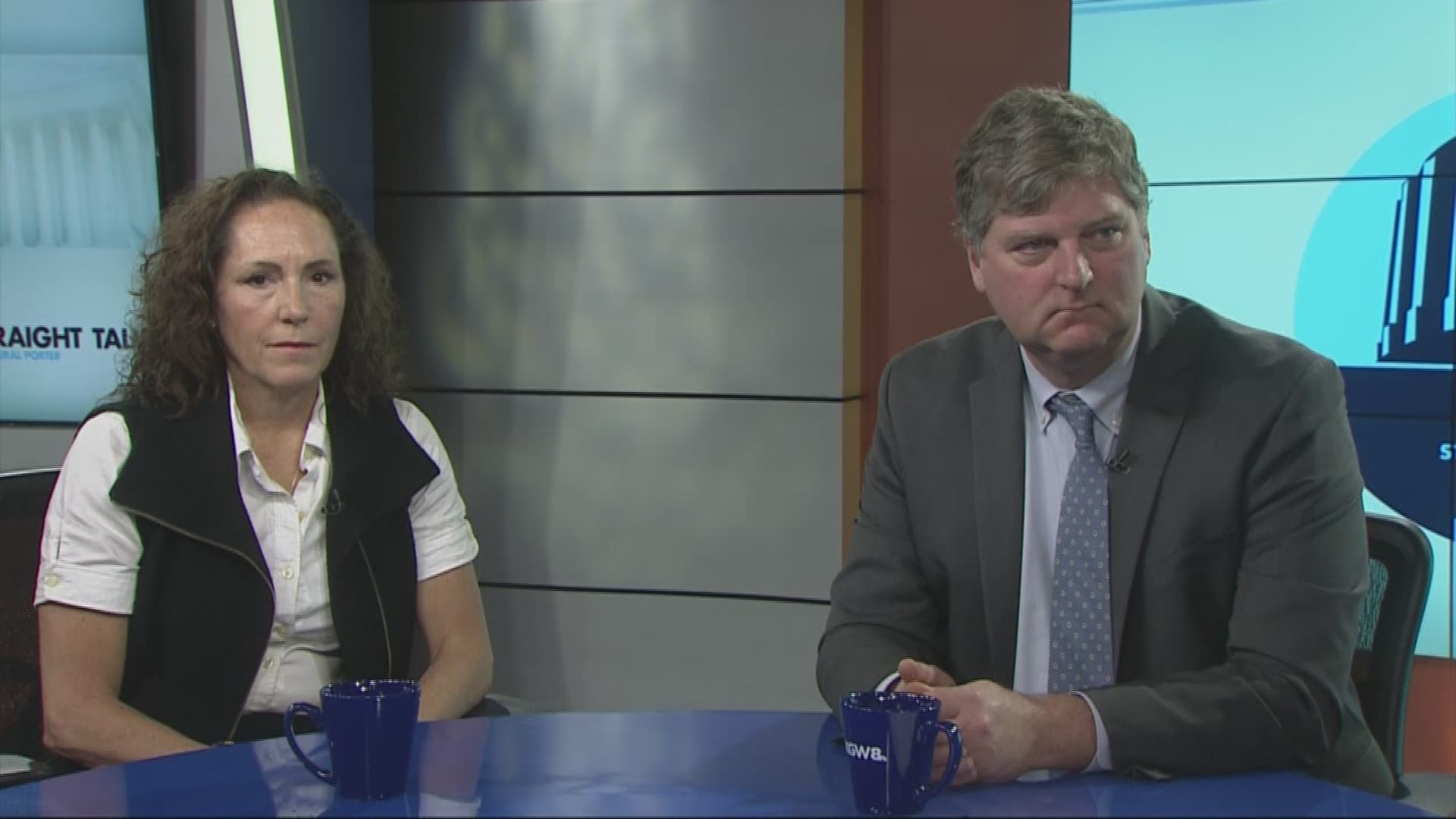Editor’s note: This month newsrooms across the state are highlighting the public health crisis of death by suicide. Our goal of “Breaking the Silence” is to not only put a spotlight on a problem that claimed the lives of more than 800 Oregonians last year, but also examine research into how prevention can and does work and offer our readers, listeners and viewers resources to help if they – or those they know – are in crisis.
Most of our work will be published and broadcast April 7-14. The participating media outlets are using a common set of data and have loosely coordinated their coverage in an effort to avoid duplication and better amplify all of our work. When possible, we will promote each other’s stories, but all of them can be found on breakingthesilenceor.com
PORTLAND, Ore. -- Oregonians are more likely to consider suicide than the average American — with nearly one-third across the state reporting that they’ve considered taking their own lives, according to a new poll.
A DHM Research survey found that 31 percent of Oregonians report having had suicidal thoughts, compared to 21 percent of all Americans.
The grim results accord with Oregon’s higher-than-average suicide rate. Last year, about 18 per 100,000 Oregonians killed themselves. Nationwide, it was 13 per 100,000 people.
“It’s a more common experience in Oregon. They are more likely to know somebody, more likely to talk to somebody,” said John Horvick, a vice president for the polling firm. “That ripples out into their relationships with other people.”
But the concerning rate of self-harm doesn’t mean cries for help go unanswered. In fact, 67 percent of Oregonians said nothing could stop them from trying to prevent a self-inflicted death, compared to 39 percent nationally. Many respondents in a nationwide survey said they might hesitate for fear of doing or saying the wrong thing, or out of fear that nothing they did would make a difference.
Intervention works. Counselors at Lines For Life — which operates a 24-7 crisis center in Southwest Portland as part of the National Suicide Prevention Hotline (800-273-8255) — have been found to de-escalate more than 95 percent of all incoming calls without needing to contact first responders.
Lines For Life chief executive Dwight Holton says it’s crucial that Oregonians keep talking, as honest talk can shatter the barriers that prevent people from seeking help. “Human connection is what matters,” he said. “It’s OK to not feel great, but what we know is: reach out for help, because help works.”
Oregon’s high rate of suicides may be helping to break down the stigma as well. Fifty-four percent of the survey respondents say they’ve talked openly about suicide, in contrast to 42 percent nationwide.
Here are the other key takeaways from the poll:
- 70 percent of Oregonians have spent time worrying about a friend or family member’s mental state. The national average is 33 percent.
- About 34 percent of Oregonians know someone who has survived a suicide attempt, as opposed to 22 percent nationally.
- Only 9 percent of state residents report no familiarity with suicidal thoughts or actions in their lives, compared to 28 percent of all Americans
In follow-up interviews with the Pamplin Media Group, several poll respondents said they were not surprised to learn Oregonians are comfortable talking about suicide.
“I don’t consider it to be a dark topic,” said one participant, a Beaverton resident named Danny.
“Someone who [attempts] suicide is someone who has been pushed to their limit,” he continued. “They couldn’t think of any other way, and if they didn’t seek out others to help them, then that’s the course they chose.”
Another respondent, who spoke on the condition of anonymity, highlighted the burden for those battling mental health issues in the LGBTQ community, especially for those in their teenage years.
“It’s pretty lonely,” said the Portland resident, who described feeling ostracized by friends after coming out as transgender. “There’s this vast difference in outcomes, depending on whether a transgender person has a team of emotional support.”
Holton said his organization receives many calls from people who have been “other-ized” due to their sexual or gender identity, with calls flowing particularly to the YouthLine (877-969-8491). That said, Holton notes that the people most likely to kill themselves are older white men.
“This challenge knows no racial, gender or other traditional boundaries. Suicide comes home to everybody,” he said. “The most important thing we can do is make sure people know it’s OK to reach out for help.”
__________
The DHM online poll surveyed 309 Oregonians between Feb. 13 and Feb. 22. The margin of error is 5.6 percent. DHM conducted the survey, at no cost, for media organizations participating in “Breaking the Silence,” a collaborative initiative to draw awareness to the issue of suicide in Oregon.
RELATED:
RESOURCES:
The National Suicide Prevention Lifeline can be reached at 800-273-8255. The Crisis Text Line provides free, 24/7 crisis support by text. Text 741741 to be connected to a trained counselor.
Help is available for community members struggling from a mental health crisis or suicidal thoughts. Suicide is preventable.
The Multnomah County Mental Health Call Center is available 24 hours a day at 503-988-4888.
If you or someone you know needs help with suicidal thoughts or is otherwise in an immediate mental health crisis, please visit Cascadia or call 503-963-2575. Cascadia Behavioral Healthcare has an urgent walk-in clinic, open from 7 a.m. to 10:30 p.m., 7 days a week. Payment is not necessary.
Information about the Portland Police Bureau's Behavioral Health Unit (BHU) and additional resources can be found by visiting http://portlandoregon.gov/police/bhu

